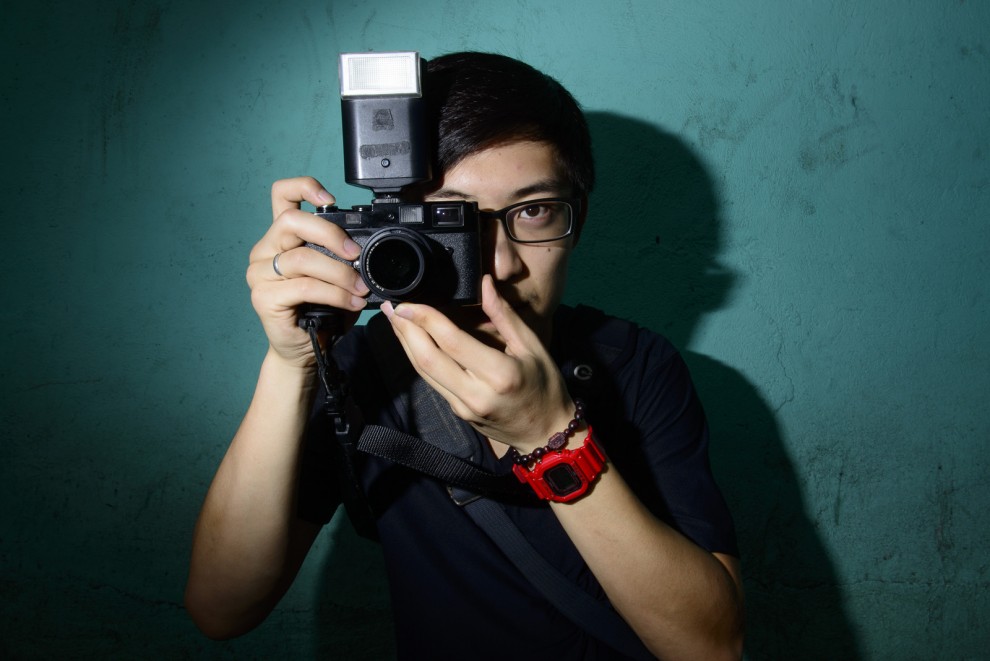He’s only 27 years old, but Eric Kim has already established a reputation as one of the most influential street photographers in the world. His blog is one of the most popular photography websites on the net and his popular street photography workshops bring the elusive art to people from all walks of life. I sat down with Eric to talk about where he’s been, where he’s going and street photography in general. Hit the jump for the interview.
Eric Kim On Life, Happiness And Street Photography
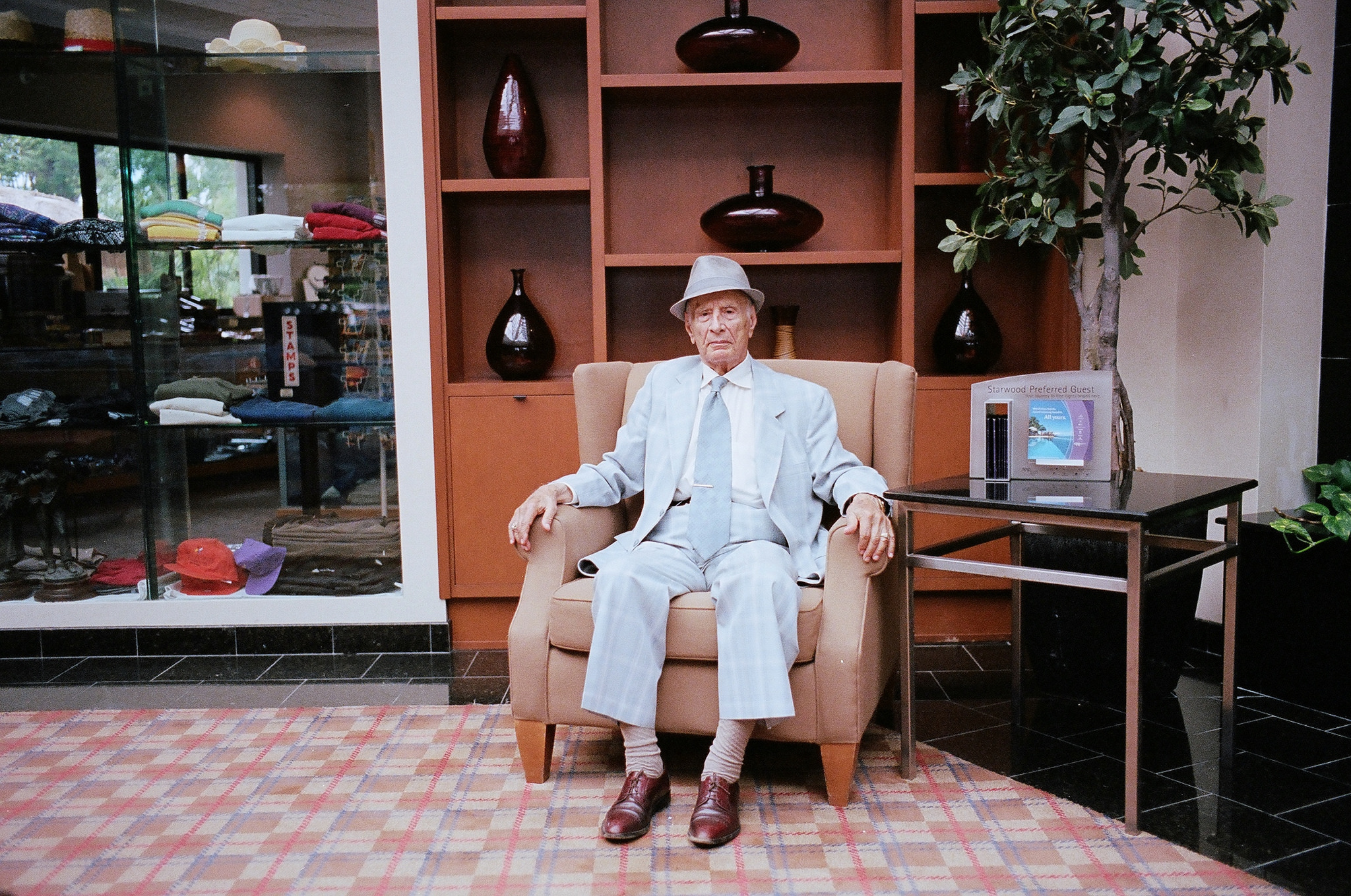
He’s an outspoken advocate for street photography and his street photography blog has become a nexus for street photographers around the world. I met Eric Kim a few years back when I took one of his workshops in Toronto and we’ve become good friends since that time.
He’s well known for shooting film and his trusty Leica MP is loaded with Portra 400 and always ready for the next shot. Scoping out the room for a quirky moment that can’t be resisted. I convinced him to put down the camera for long enough to talk with StreetShootr:
StreetShootr: You’ve been shooting and teaching street photography workshops for about a decade now. How have your ideas about street photography changed then over the years? What’s different today than it was when you started?
Eric Kim: I think it’s been around 9 years. But ya, so if you Googled street photography 9 years ago, it was just all Henri Cartier-Bresson, black and white shots. But in the last few years it’s kind of been more shifting towards a more complex kind of more emotional type of photography. So like you know you see a lot more people interested in Bruce Gilden or Alex Webb’s work. Lots of color. I think nowadays you see more of a shift towards complex images where there’s more colors, more layers and more depth and emotions to it and I think street photographers now are getting a lot more sophisticated,
I mean if you look at let’s just say the hardcore street photography community or people in Burn My Eye or In Public or Observe, all the great street photography collectives out there… The work is kind of changing, it’s evolving, redefining itself. My personal view is that street photography has become a lot more liberal. Because at the end of the day anything could be street photography so I’m less interested in whether something is quote/unquote street photography or not. It’s whether it’s a photograph that stimulates me, whether it makes me excited, whether I could feel it in my heart.
I guess maybe humanistic photography could be a better description for street photography for me at the moment.
SS: Do you think digital photography or the internet had a greater role in the advances in street photography?
EK: I mean I think it’s both, both the things you mentioned, the advent of digital and internet. But really, I think a lot of the popularity of street photography is also because of the iPhone and Instagram.
Because you know demographically more and more people are moving into cities and when you have 10 minutes to spare you can look around and find something interesting to shoot. You just bust out your iPhone and start doing street photography. I like the idea of street photography being the most democratic form of photography where you don’t need a fancy camera and with such easy accessibility to technology some of the best street photographers I know just shoot with iPhone or smartphones.
But the funny thing is there’s this kind of shift nowadays that me, photographers like you, are kind of going back to the past and shooting more film.
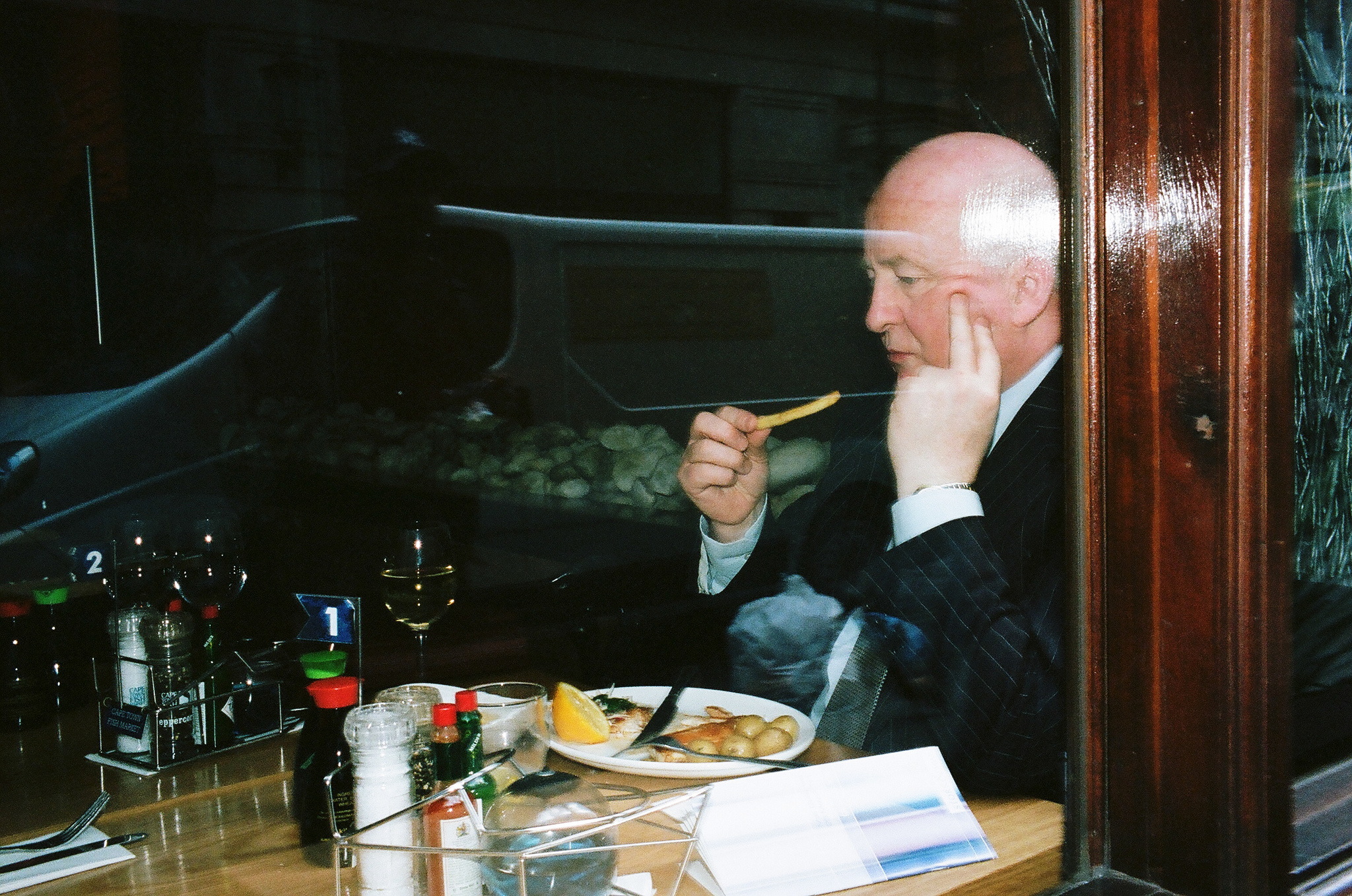
SS: You know, I wonder if you can you really use the iPhone for street. I agree with you, it’s a good camera and it’s so accessible. But I’m not sure if it’s fast enough for the way I shoot.
EK: Well, I mean I think you are right, there’s really nothing faster than shooting with the Rangefinder or shooting with the Leica. But digital Leicas can go to sleep or you forget that’s not on and so you bring it up to take the shot and it’s dead. But with shooting with the film like your camera is pretty much always on and so when I’m generally walking around on a bright sunny day it’s always at f8 like around 1000th of a second so if I see something I could just quickly bring it up and snap a photo just instinctively versus like let’s say shooting with iPhone.
SS: Now you are going on about how the analog Leica is always prepared. Tell the truth – has there ever been a time when you forgot to cock the shutter.
EK: No, no for me I always cock the shutter after every expsoure so it’s always on. But every once in a while I’ll go out for shooting and I’ll start off on frame 31 or 32. So I only have like let’s say 4 shots left in my roll so I will shoot and I will be working the scene and quickly run out of film.
SS: Reminds me of one of my favorite Winogrand quotes. Someone asked him about missing shots when he rewinds the film…
EK: What was it? Oh photographs don’t exist when I’m reloading my film.
SS: Right! But I mean there’s other options besides Leicas. I personally think the Fuji X100 did a lot to get people into street photography. It’s a small quiet unobtrusive camera and it really captured people’s imagination.
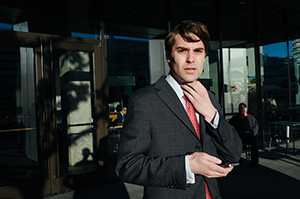
EK: Yeah, no I agree with you, I think the Fuji X100 series cameras have probably been the best camera for street photographers in the last several years because it has a fixed 35mm lens and it was really the only inexpensive rangefinder style camera. Kind of like the every man’s Leica. And yeah you know a lot of people see the camera and think oh wow that’s just such an old cool camera, what is it good for? Those cameras definitely helped inspire people when it comes to street photography.
SS: Sure. But again though you know we both know it doesn’t really matter what camera you shoot with.
EK: Oh it’s funny, you know the Cappa quote if your fellows aren’t good enough, you are not close enough? My friend Charlie Kirk from twocutedogs.com hijacked my Twitter a couple years ago and he wrote a tweet that said that if your photos aren’t good enough your camera isn’t expensive enough!
It was funny because 90% of the people understood that it was a joke but there were some people who thought I was being an elitist snob because I shoot with the Leica. But that’s totally not my intent at all. But I think it is a funny quote.
SS: We talked about shooting film and you’ve been shooting film for how long now, like four years, five years.
EK: Maybe three and a half years, something like that, yeah.
SS: Do you ever see yourself moving away from color film? Like how expensive would a roll of Portra 400 have to be before it was just too expensive?
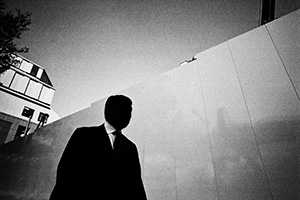
EK: You know, I have seen over the last few years a roll of Portra go up from let’s say 5-6 bucks a roll US to around like 8-9 bucks. But the real problem for me is that the lab at the Costco close to me decided to shut down. I think the machine broke and they didn’t have enough film business to fix the machine.
There were other places I could go to get things processed, and shuttle the film back and forth. But that was just too much of a hassle. And just randomly I had a bunch of Tri-X just sitting at home that I haven’t touched in 2 or 3 years. And for some reason, I just had an urge to start shooting it.
So I just popped in a roll of Tri-X and then I had to decide if I was going to shoot it at 400 or… PUSH IT TO 1600 BABY! [Luaghs] I mean I haven’t shot indoors with film forever! And even random stuff like it was a kind of dark cloudy day and I was shooting at f8 @ 1/1000 sec on a cloudy dark day. You know I’m like, that’s freaking awesome!
When I actually started shooting black and white it was almost like the day I started shooting photography for the first time. I had this joy again it was like being a kid and picking up photography for the first time. I just started to see the world differently.
SS: Now you decided to go with Tri-X for black and white. Why did you pick Tri-X over HP5?
EK: You know, I’ve never shot HP5. When I started shooting film for the first time and I was in Tokyo, everyone automatically suggested Tri-X. So I went that way. There’s so many types of black and white films out there but photojournalists and street photographers have been shooting Tri-X forever. And I’m sure HP5 is amazing, but I think Tri-X really feels like a brand name I can trust, if that makes any sense?
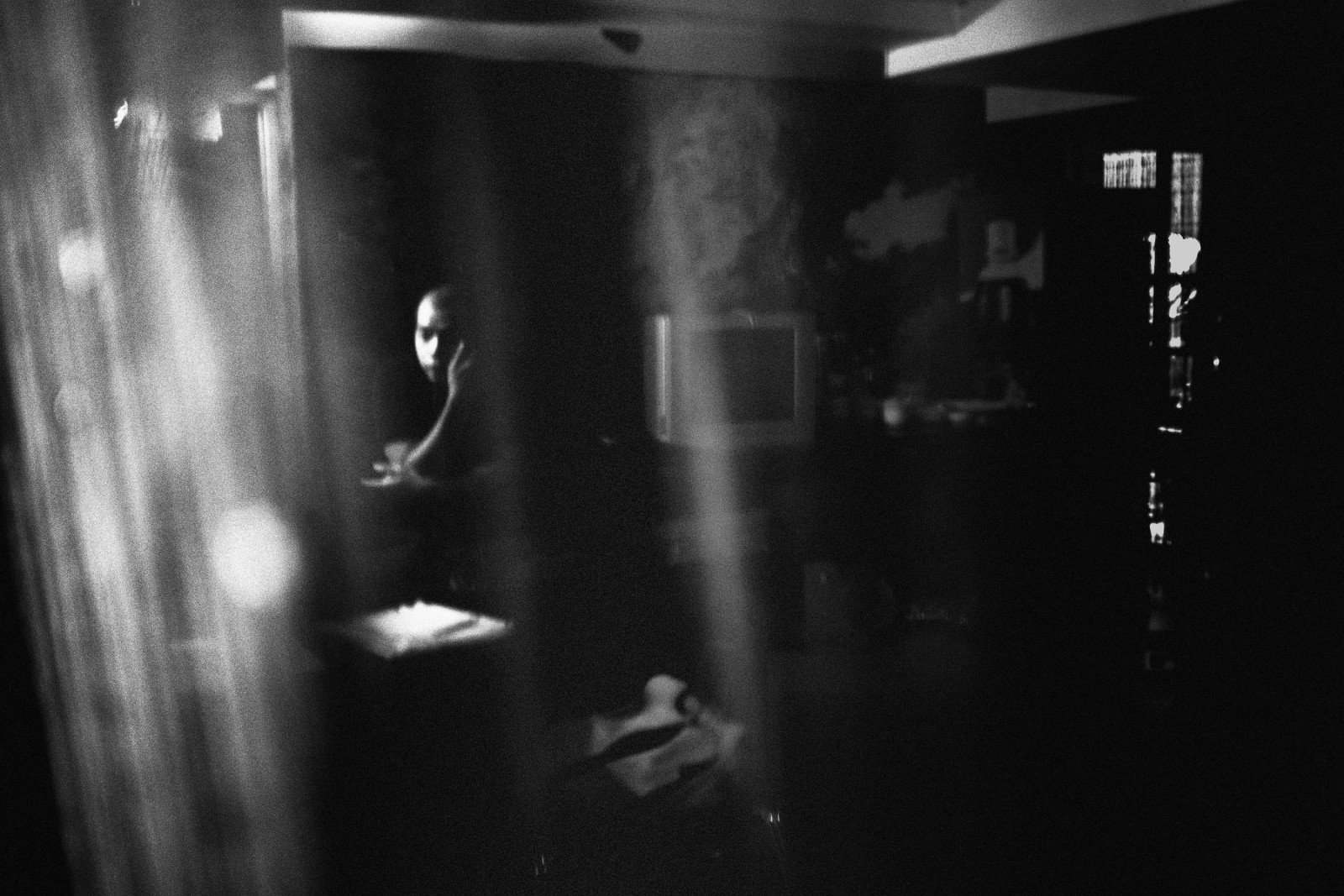
SS: Oh, I hear you. I ended up going with HP5 because I was worried about the cost of film. Tri-X is 4.89 US a roll and HP5 is 4.75 US a roll…
EK: That’s not that much cheaper.
SS: Right, it’s almost the same until you look at bulk prices. A bulk roll of Tri-X makes somewhere around 20 rolls of film and costs around 90 bucks. But HP5 for the same amount of film is only $54.00! It’s almost like Ilford has targeted the student market with bulk film and made it under $3.00 a roll. It’s just so cheap and the grain is so nice.
One thing that bothers me about the new Tri-X…
EK: Oh, I didn’t know there was a new Tri-X.
SS: My understanding is that they made some changes to Tri-X so it could be manufactured on the new style machines. They say it’s the same but I find there’s some differences compared to the Tri-X I shot 30 years ago when I was in school.
The new Tri-X has a pronounced curl to the film base that takes 2 days to press out under my heaviest book which is Magnum Contact Sheets. That’s just to get it flat enough to scan the negatives. But HP5 is like a dream. It dries perfectly flat and the grain reminds me of the grain that Tri-X used to have. The new Tri-X? They say it’s the same but I look at it and the grain looks a bit softer to to me.
EK: So how is the look of HP5 different compared to Tri-X?
SS: HP5 grain has a sharper edge to it. I think the term is accutance. Today’s Tri-X looks a little softer to me. Like that grains are almost tabular rather than sharp salt grains. But the gradation of tone is still beautiful in Tri-X. People use both and to be honest they’re almost interchangable. It’s a matter of what works for each photographer.
EK: You know, it’s funny. I recently redesigned my website with a new portfolio. And I made a new gallery called grit and grain. I stole the name from the Flickr group because I like it so much. It’s all my favorite kind of gritty black and white photos I’ve taken over the last 4 years. And I look back at these photos and I realized this is kind of my favorite work. And why not just go back to shooting black and white. I mean I don’t think I’ll ever stop shooting color but it’s just kind fun to do different things.
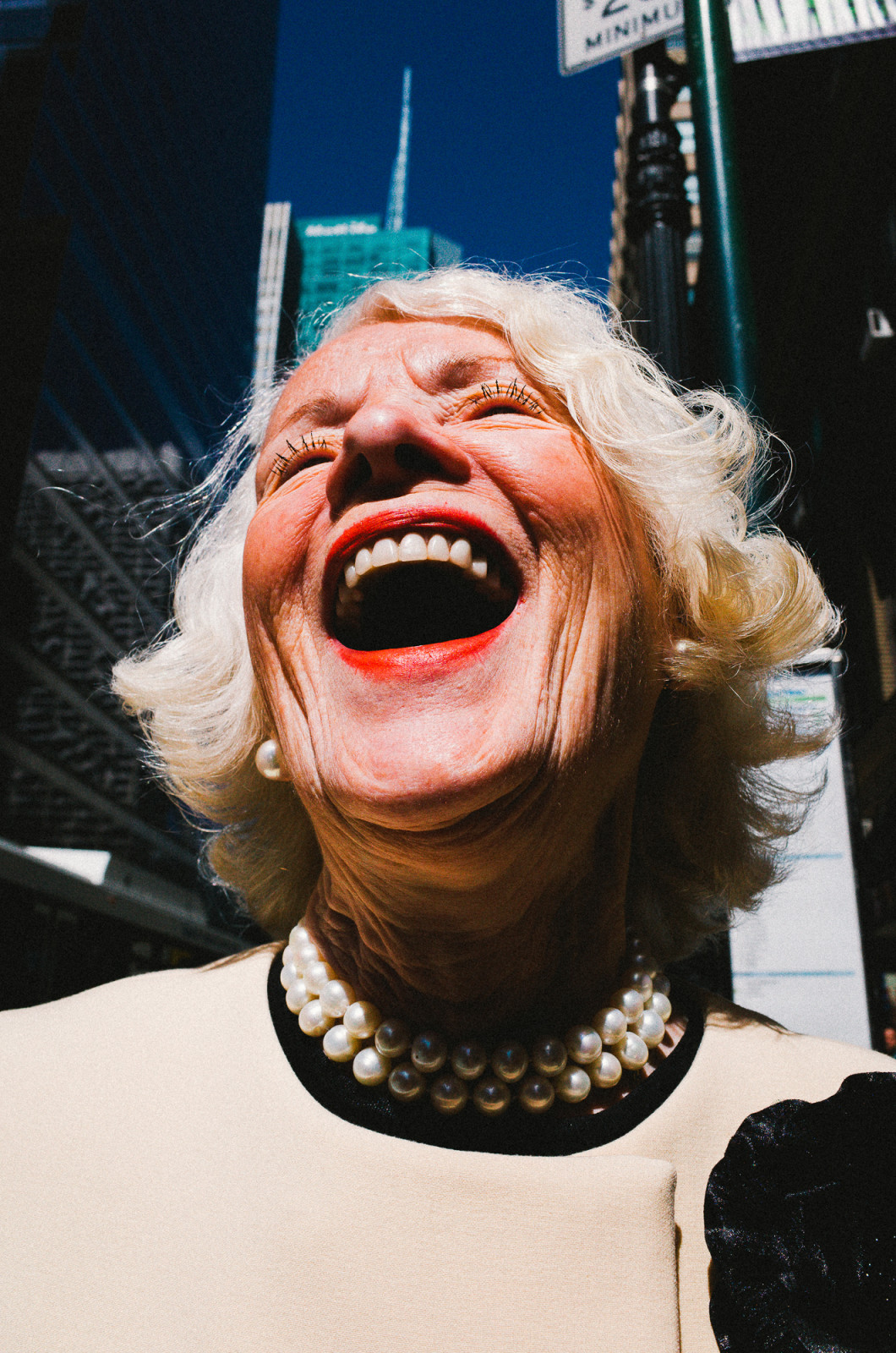
SS: What’s your favorite picture that you’ve ever taken?
EK: There’s actually one photo, and I’m totally biased because a lot of people like it on social media. It’s a photo I took recently of a lady in New York City. She’s got red lips, white hair and you can see New York City in the background. She’got her head cocked back and she’s just kind of laughing up a storm.
SS: So why does this one resonate with you then?
EK: Well, I guess I’m biased because I know the back story fo the image. And I know that you shouldn’t care too much about the back story. But for me the reason why I like this shot is so this lady is 82 years old. And she just looks amazing – she’s dressed up to the nines and to me it’s a very happy photograph.
I look at this photo and it puts me in a good mood. And I could just kind of feel her laughter and she’s elegant but at the same time it’s kind of like this weird perspective and I love the colors, I love the blue in the background, I love the red of her lips, I love how you can just kind of see into her mouth. The pearl necklace and stuff like that.
I mean sometimes I think sometimes my photos can be kind of depressed and a little dark. But I ultimately want to make photos that make people happy and laugh and help see more of the positivity and optimism in life and I think this photograph does that pretty well.
SS: What about something taken by someone else? If you had unlimited funds and you could own any photo for your wall, which one do you think you would go for.
EK: By a different photographer?
SS: Yeah, not shot by you. Because we’re not supposed to hang our own photos on the wall right? That’s vain isn’t it?
EK: Well, you know it’s funny because I in my house I have a few photos taken by myself hanging on the wall but it’s more because Cindy wanted me to hang them. I like the photos but I feel like I don’t need to hang them. I’d rather give them away to my friends and I would rather be inspired by other people’s work.
But to answer your question, I have very good friend his name is Sean Lotman and he shoots all color film and cross-processes it and makes color prints in his own darkroom. And actually currently my favorite photo is one of his.
I’m lucky enough to have three series of photos by him and these are all hand-printed photos that he gave to me as a gift when I visited him in Kyoto and yeah I think this guy is probably currently my favorite color street photographer. His website is at http://seanlotman.com. Definitely check him out.
SS: What’s the best photo-book you seen in the last six months?
EK: Like photo art book or like photo educational book.
SS: Art book, books of photographs… Photobooks, I think, is the noun they’re using these days.
EK: Okay, but let me first include the educational one. Todd Hido has a new book published by Aperture called Todd Hido on Landscapes, Interiors, and The Nude. It is probably like the most quotable book that I personally have read on photography and it’s – I mean I have done like such a long article on him because I just found it to be so informative.
In terms of photobooks, it would probably be Exiles by Koudelka.
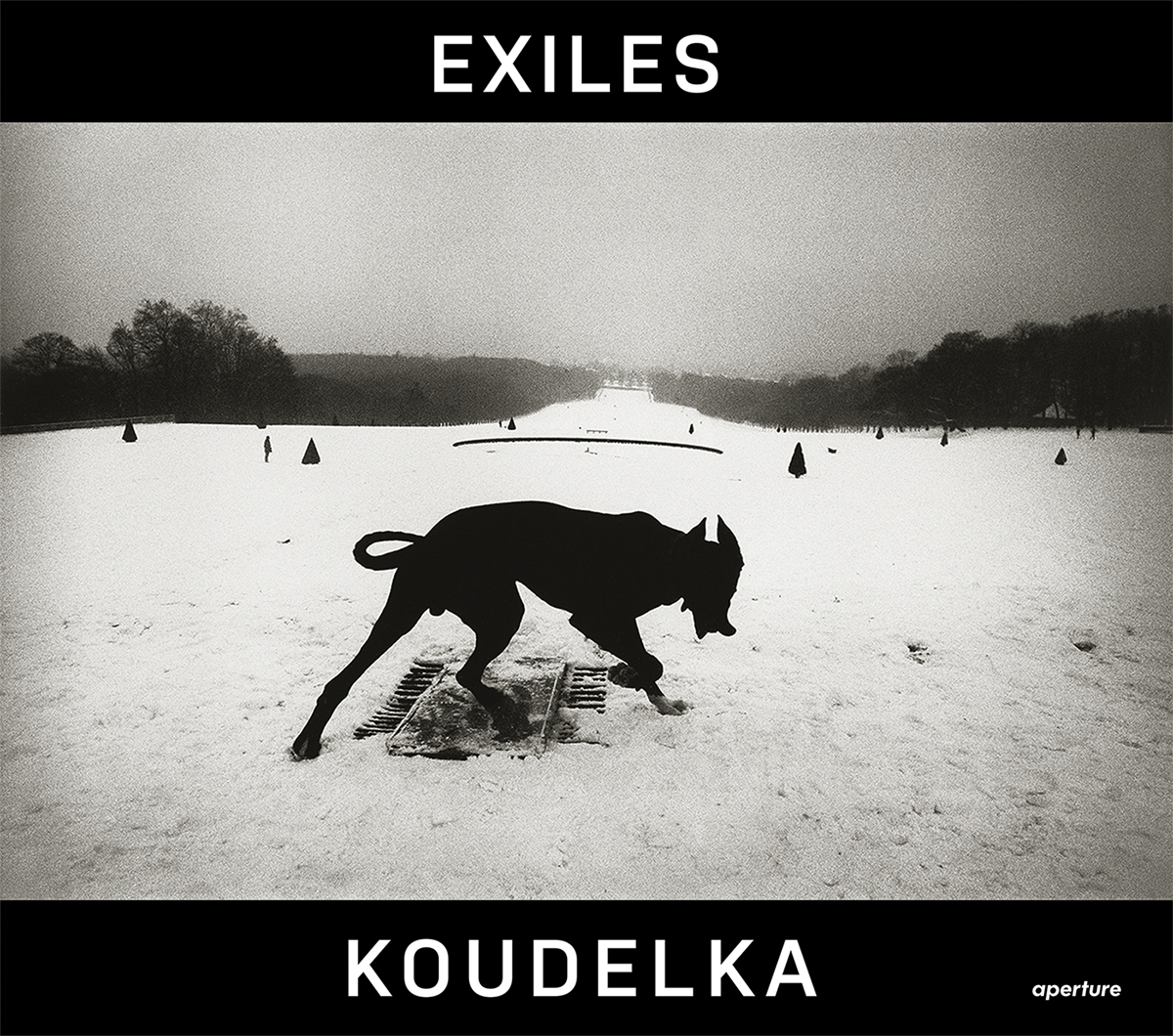
SS: Yeah, that was just reissued last year, right?
EK: Yeah, and the reason why I would choose that is that it used to be so expensive and rare, you just couldn’t get a copy of it. But the reissue looks great and I think the reason why like is because it’s very personal. It’s kind of a narrative and it’s almost like you are following Koudelka on a journey. His photos are so simple but so emotional and I’m really drawn to that.
I think nowadays photographers try to show how clever they are through photographs rather than expressing emotion. It’s about layers of composition and the light but sometimes that feels more like visual gymnastics. I’m more interested in images that make me feel like more emotional or see the world in a different way.
Definitely check out Exiles.
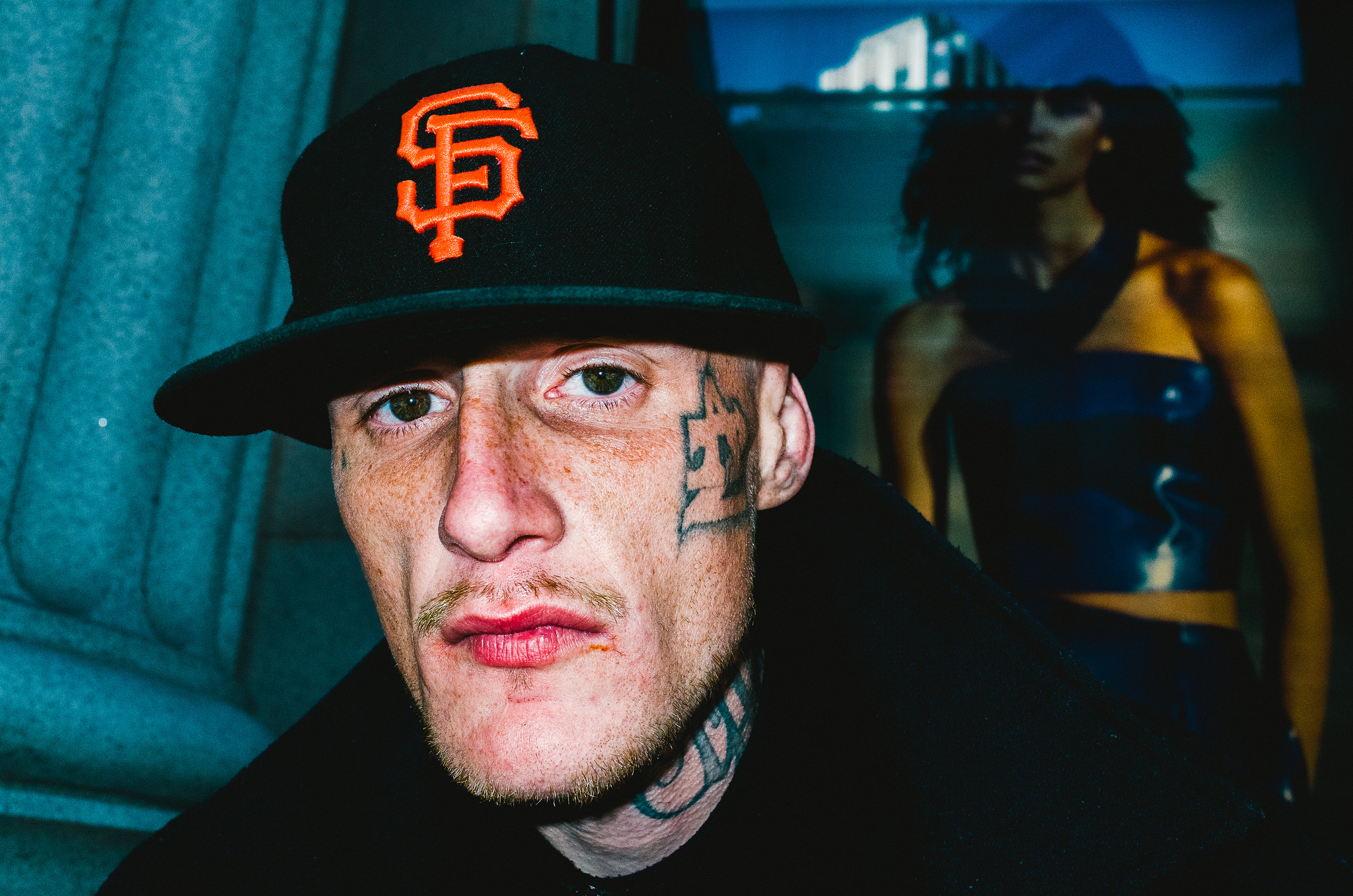
SS: For me, emotion is the one thing that’s virtually impossible to produce in a photograph. To convey emotion in a photograph? I have failed miserably every time. I got pictures of people laughing, I got pictures of people who were mad but conveying that sense a raw sense emotion? I haven’t been able to do it yet.
EK: I mean it’s really one of the most difficult things to do because I think a lot of photographers forget just how hard photography is. I mean it’s like chess right, anyone could learn how to pick up in chess in like a minute but to become a grandmaster it takes you like years and decades of work.
I think there are probably a handful of photos I think of yours Karl that show a little bit more sense of melancholy and sense of loneliness because I think on the outside you’re a funny guy but there is that contemplative maybe more melancholy side to you. And maybe this is something you can work on to make different kinds of photos.
For me, it’s less about street photography, it’s more about art, creativity, building a sense of vulnerability through my work. I think as photographers we should also consider ourselves as artists. Not art in an egotistical way but think of everything we create in our lives as having some sort of intrinsic value in terms of the way we see the world.
So I think I am also trying to think like hmm how can I become more like an artist you know in like not in a pretentious way but in a way that’s very fulfilling.
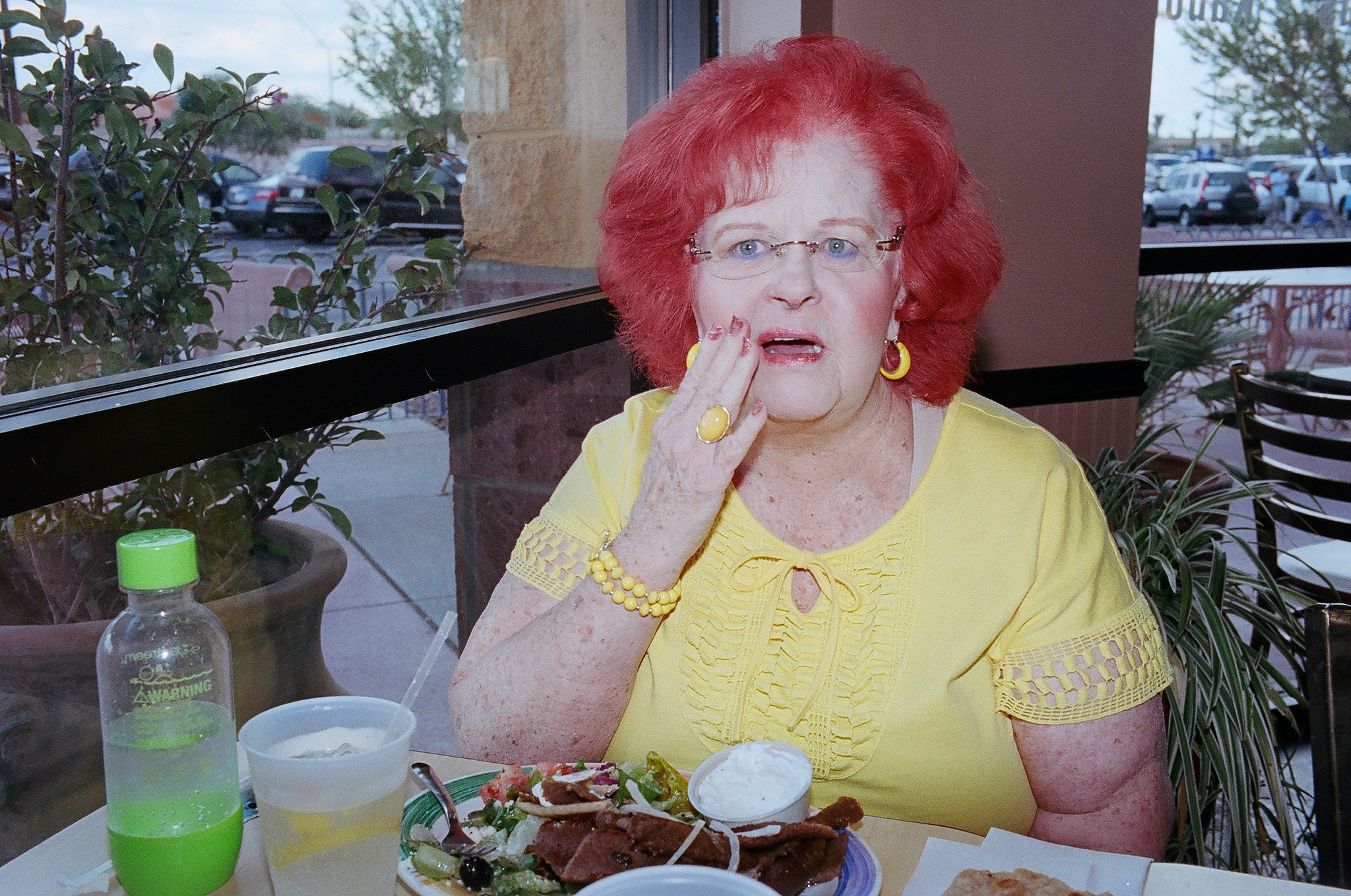
SS: You still do a lot of teaching. How many weeks are you on the road?
EK: The first part of this year I did most of my workshops in the United States. I usually average one and a half to two workshops a month. But this summer in Europe I am going back to back to back to back. I figured I don’t get to Europe very often so I might as well make the most of it. Treat the workshops almost like how a musician would go on tour, you know?
I think I’d like to get it to the point where I travel once a month maybe one weekend out of a month. Because ultimately I love being in Berkeley, I love being here with my friends and my family and those close to me. If I could have it my way maybe yeah like one weekend or one week a month would be ideal for me.
But over the last few years it’s been more around two and a half to three weeks a month that I’m on the road. I’ve done a lot of travelling!
SS: Do you see a difference in students around the world? Are students in England different from students in North America, for example?
EK: Well, one interesting thing I find when I do workshops in Europe there’s actually a lot more women in the workshops than let’s say in North America. Of course there are like some stereotypical differences but at the end of the day students from all around the world are much pretty similar.
They all have this passion for street photography regardless of age. My youngest student was like 14, my oldest student was like 78 and I’ve found it doesn’t really matter your age or where you are from. People at the workshops just share the passion and interest in street photography, a love of exploration and serendipity. Honesly, teaching these workshops has given me more faith in humanity because we are all more similar than dissimilar.
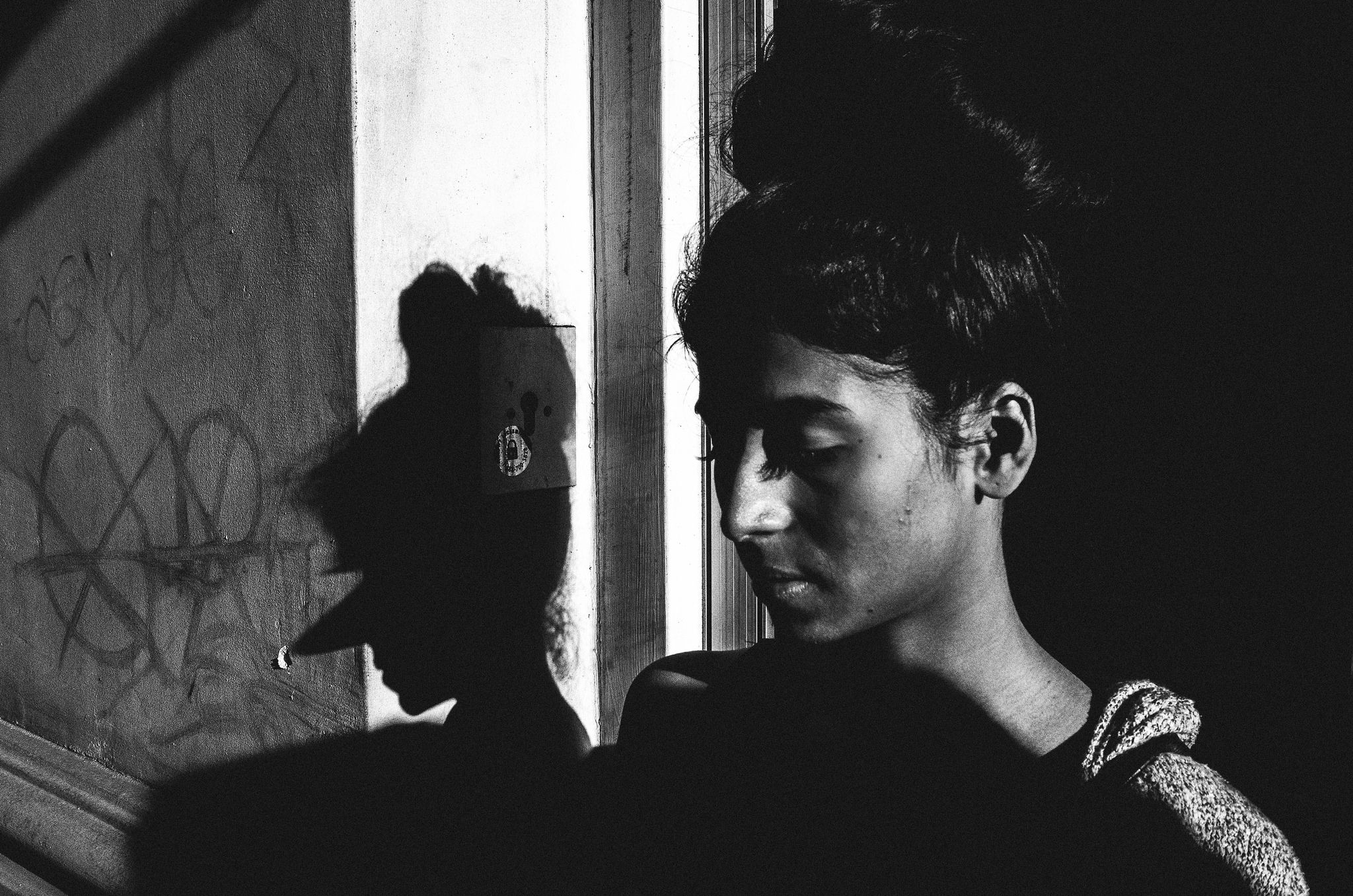
SS: Would you say that teaching the workshops has made you personally a better photographer, how does teaching for so long – how has that changed how you look at photography?
EK: Well, it’s okay, so the teaching has helped me in a lot of ways because first for example you have to practice what you preach, Right? And I recommend people know shoot every single day don’t be too timid to take the shot. Now, I do carry my camera with me everywhere I go, I don’t always shoot every single day.
And when I find myself hesitating before taking a shot I actually imagine a student standing next to me and like if a student was watching me how would I perform differently?
So like even when I am shooting street photography I am by myself, I see a scene and I’m scared to shoot it and I’m thinking you have to practice what you preach! What would my students say? Oh crap, I will go and just shoot it. And so it kind of helps me stay fit creatively. And believe it or not, when I’m not doing workshops, I don’t shoot nearly as much as I should. So the workshop gives me an excuse to go out and shoot. Some of the best photos I have taken have been in the middle of doing a workshop. That shot of the lady in New York City was taken literally in the last hour of a workshop I did in New York.
So teaching workshops gives me an excuse to go out and shoot and at the same time learn a lot from my students. I mean I think I want to consider myself less as a teacher and more of a facilitator where I’m not telling the students hey you should do X, Y and Z to be a better photographer. It’s more of like I want to help them unlock their inner greatness and I’m just trying to be more of a guide than an authority figure if that makes sense.
SS: Yeah, it makes a lot of sense. I hate to cut this off because I could sit and yack all afternoon. Thanks for taking the time to talk to StreetShootr. Can’t wait until the next time you’re in Toronto!
EK: Oh, thank you very much and I do recommend everyone to continue to follow streetshootr.com.
SS: StreetShoot R!
EK: StreetshootR.com for the best street photography news, updates and viral goodness!
Eric Kim Street Photography On Flickr.
Eric Kim Street Photography Workshops.
Sean Lotman Street Phootgraphy
Exiles – Koudelka
Landscapes, Interiors The Nude – Todd Hido
All images © Eric Kim (except Exiles book cover).
StreetShootr’s Take
Eric Kim’s continued optimism and real desire to enrich people’s lives through street photography workshops makes him stand out. He’s an interesting guy no matter which way you look at it. The interview ended up being more like a conversation (and at times I thought he was interviewing me!) But that’s just the way he is in real life. He’s curious and always wants to try and understand different points of view. Interesting guy for sure!
What’s your take on the Eric Kim interview? Post your ideas in the comments below and keep the conversation going!

